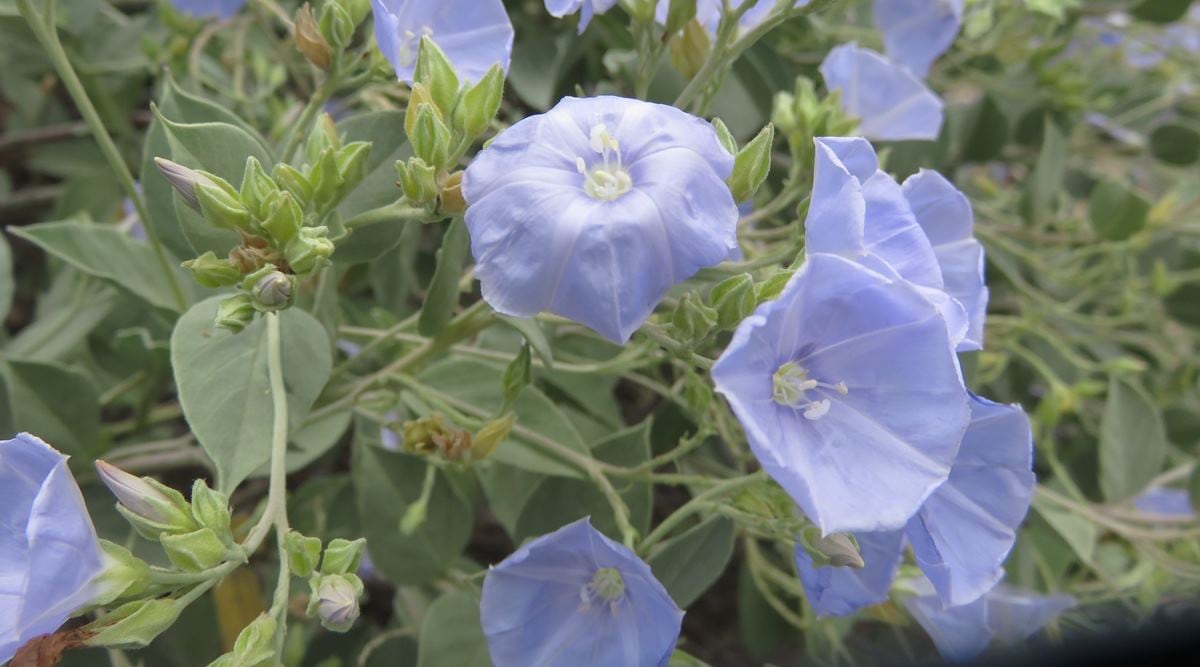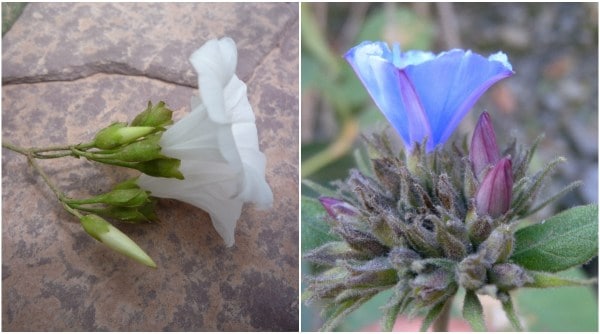 Jaquemontia chuquisacensis has a very limited area of less than 20 sqkm (John Pink via University of Exeter)
Jaquemontia chuquisacensis has a very limited area of less than 20 sqkm (John Pink via University of Exeter) Researchers from the UK have identified five new flowering plant species in the Bolivian Andes belonging to the genus Jacquemontia. Across the globe, there are about 120 Jacquemontia species.
“Many plant species have not been identified and classified, especially in the tropics,” said one of the authors, Rosemary Clegg, in a release. “If you don’t know what a species is, you can’t conserve it.
Most Jacquemontia members are found in open, bushy, or grassy areas and can grow about 30 to 100 cm high depending on the species. They are also found near settlements. “In Bolivia, the east is the most diverse in terms of species numbers. In Peru, the greatest diversity and endemism are in the dry north near the Ecuador border,” explained the paper published last week in Kew Bulletin. The study classifies and describes 28 species known to live in Bolivia and Peru.
The five newly described species are: J. boliviana, J. cuspidata, J. longipedunculata, J. mairae and J. chuquisacensis.
 Jacquemontia boliviana. and Jacquemontia cuspidata. (John Wood and Julia Gutierrez via University of Exeter)
Jacquemontia boliviana. and Jacquemontia cuspidata. (John Wood and Julia Gutierrez via University of Exeter)
Most of the studied Jacquemontia species are endemic and may face threats from invasive species, habitat destruction, and other anthropogenic activities.
The authors noted that based on the occurrence, J. boliviana would be classified as endangered and J. chuquisacensis as vulnerable. J. chuquisacensis, named after the Bolivian department (or subdivision) of Chuquisaca, has a very limited area of less than 20 sqkm. The paper added that the populations might be threatened by the proposed construction of a dam nearby.
There was only a single record of J. cuspidata and J. Longipedunculata, suggesting that these species be categorised as critically endangered. But as nothing much is known about these two species, the authors placed them in the Data Deficient category. Both the populations were found within protected areas and faced no known threats.
 Jacquemontia mairae and Jacquemontia longipedunculata. (Beth Williams and Alfredo Fuentes via University of Exeter)
Jacquemontia mairae and Jacquemontia longipedunculata. (Beth Williams and Alfredo Fuentes via University of Exeter)
Clegg, who has been studying plant communities on rock outcrops or rocky formations, explained that rock outcrops come in many forms across South America, with different geologies and different plants living on them. “As well as identifying plants, we want to learn more about these habitats and the role they play in wider ecosystems…Jacquemontia and other plants on rock outcrops are able to survive in very harsh conditions, so through them we can learn more about how plants might respond and adapt to climate change,” she adds.
- The Indian Express website has been rated GREEN for its credibility and trustworthiness by Newsguard, a global service that rates news sources for their journalistic standards.

